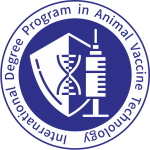Special Topic: “Nailing Your Literature Review and Data Presentation” presented by Prof. Chun-Yi Lee
On March 4, 2025, Assistant Professor Chun-Yi Lee from the Language Center led a seminar titled “Nailing Your Lit Review and Data Presentation” in IAVT. This engaging session was designed to equip participants with the essential skills needed to craft compelling literature reviews and present data effectively. A well-structured literature review is crucial for setting the foundation of any research project, as it synthesizes existing knowledge, identifies gaps, and provides a framework for further investigation. Effective data presentation, on the other hand, ensures that findings are communicated clearly and persuasively, enhancing the impact of the research.



In this seminar, students learned how to organize and structure their literature reviews, ensuring that they were concise, well-supported by evidence, and logically coherent. Additionally, they explored strategies for presenting complex data in an engaging and accessible manner, using visual aids such as charts, graphs, and images to enhance understanding and engagement. By the end of the session, attendees were better equipped to communicate their research effectively, both in academic and professional settings, thereby enhancing their overall research presentation skills.


